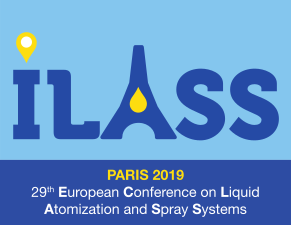The International Research Training Group (IRTG) "Droplet Interaction Technologies" (GRK 2160/1) was established in October 2016 to focus on droplet interaction technologies. Droplet interaction technologies have a large number of applications in a variety of technological processes, such as spray cooling, fuel injection, coating technologies or the generation of encapsulated material in the pharmaceutical industry.
A key feature of this large research project lies in the systematic study of the interdependencies between small-scale and large-scale dynamics through an integrated numerical, experimental and theoretical approach. The objective is to identify the mechanisms through which small-scale interactions at the interface couple with and influence large scale features in the main flow.
DROPIT is a joint initiative of the University of Stuttgart in Germany, the University of Bergamo and the University of Trento in Italy. The project consists of 17 subprojects, which are structured into three main research areas (drop-gas interaction, drop-wall interaction, drop-liquid interaction) and involving researchers from a large number of different areas like Mathematics, Environmental Engineering, Aerospace and Mechanical Engineering, Informatics and Computer Sciences. The project further consists of an extensive qualification program which aims at fostering the education of young scientists and providing them the knowledge and skills to conduct independent research.
The paper will give an overview of the structure and the research activities within GRK 2160/1 as well as on the qualification program implemented. We will highlight selected scientific results, e.g. on droplet-wall collisions with structured wall, evaporation of binary droplets, drop film interaction for binary systems, gas kinetic simulation of microscopic droplet formation, numerical methods for compressible multi-phase flows with complex equations of state, characterization of porous media by X-ray micro tomography, compressible droplet interaction with porous media.
The main purpose of the paper is to familiarize colleagues with this extensive and dedicated research effort in the area of drop interaction technologies and to exchange ideas and promote future collaboration with others in this field.



